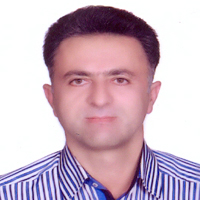Exploring Phrasal Complexity Features in Graduate Students’ Data Commentaries and Research Articles
The present study aimed at exploring phrasal complexity features in data commentaries produced by graduate students and in research articles written by expert writers. To this end, 25 empirical RAs in the field of Applied Linguistics and 158 data commentaries generated by graduate students of English Language Teaching were comparatively examined. The results revealed that students approximated expert writers in terms of producing two linguistic features (i.e., N+N structures and nominalizations). However, they differed significantly from expert writers in generating four linguistic elements (i.e., attributive adjectives, appositive structures, of-genitives, and PPs as noun post-modifiers). The results also revealed that expert writers’ texts comprise varied presence of exceedingly complex patterns of pre-modification, triple/quadruple/quintuple (pre)modification, a hybrid of novel appositive structures, and multiword hyphenated adjectives. Conversely, graduate students’ language could be characterized by less variety, single/dual (pre)modification, a far less extensive range of noun-participle compounds functioning as nominal pre-modifiers, linguistically limited complex modifications, and minimally multifarious patterns of use associated with N+N formulations. Overall, the findings can give fresh insights into the needs of the L2 student writers in developing an academic text.
-
Book Reviews in Sciences: Structural and Functional Differences in Lexical Bundles
Vahid Niamadpour, Alireza Jalilifar *
Teaching English as a Second Language Quarterly, Autumn 2024 -
Examining Classroom Observation Forms in the Iranian Context: A Rhetorical Analysis of Academic Commentary in Teacher Evaluation
Amin Ivaz, Alireza Jalilifar *
Applied Research on English Language, Nov 2023



